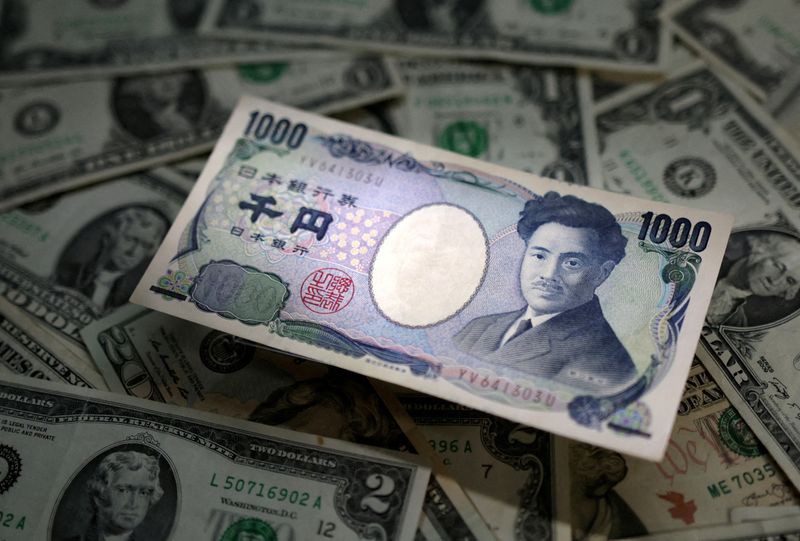By Leika Kihara
WASHINGTON (Reuters) -The International Monetary Fund said the yen's recent declines, while "quite significant," largely reflect the interest-rate differential between Japan and the United States, suggesting that its moves were largely in line with economic fundamentals.
A broad dollar rally driven by receding market expectations of a near-term U.S. interest rate cut has recently pushed the yen to a 34-year low, heightening the chance of currency intervention by Japanese authorities.
"Japanese authorities are committed to a flexible exchange-rate regime, which allows the exchange rate to act as a shock absorber and support the monetary policy objective of price stability, as well as help maintain an external position that is in line with fundamentals," Krishna Srinivasan, director of the IMF's Asia and Pacific department, told a briefing on Thursday.
The Group of Seven (G7) advanced economies also reaffirmed their commitment to a market-determined exchange rate in a finance leaders' statement issued on Wednesday, Srinivasan said.
"The yen has depreciated about 9% against the dollar so far this year, which is quite significant," he said.
"Like other countries in the region, this largely reflects interest rate differentials, but we will continue to monitor the data," he said, when asked whether recent yen moves justify intervention by Tokyo to slow the currency's slide.
The yen has been declining since the Bank of Japan's decision last month to end eight years of negative interest rates, as markets focused on its dovish guidance signalling that borrowing costs will be stuck around zero for some time.
While a weak yen gives exports a boost, it has become a headache for Japanese policymakers as it inflates the cost of living for households by pushing up import prices.

The United States, Japan and South Korea agreed to "consult closely" on foreign exchange markets in their first trilateral finance dialogue on Wednesday, acknowledging concerns from Tokyo and Seoul over their currencies' recent sharp declines.
When asked about the South Korean won's falls, Srinivasan said its recent volatility did not pose significant challenges to the economy because of the country's improved current account balance and muted inflationary risk.